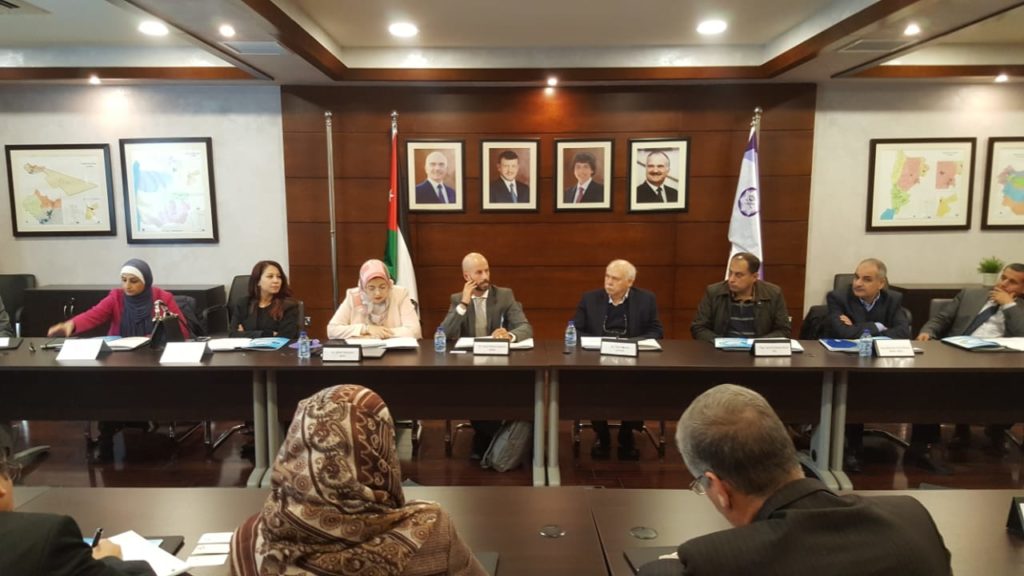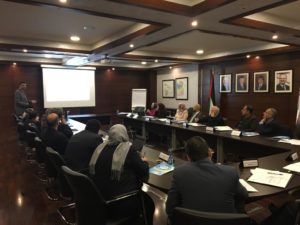Jordan’s first National Steering Committee meeting held

On March 26, 2019, the ReWater MENA project held Jordan’s first National Steering Committee (NSC) meeting at the Royal Scientific Society (RSS). The meeting brought together representatives from the Ministries of Water and Irrigation, Agriculture, Environment and Health as well as the Water Authority of Jordan, Jordan Valley Authority, International Center for Agricultural Research in Dry Areas (ICARDA), German Agency for International Cooperation (GIZ), Arab Countries Water Utilities Association (ACWUA) and International Water Management Institute (IWMI).
The meeting offered RSS, the ReWater MENA Project’s partner leading implementation in Jordan, an opportunity to stress the close alignment of the project’s objective with the strategy of the Ministry of Water and Irrigation, which aims to increase the amount of treated wastewater from 150 million cubic meters (MCM) to 240 MCM by 2025. RSS presented a documentary film about its mission, scope of work, laboratories and research activities. The meeting also familiarized uptake partners with IWMI’s work in the region, including the ReWater MENA project.
RSS representative Dr. Al Moayied El Sayed explained the project’s work in Jordan, emphasizing its five main objectives;
- Explore potential for expanding wastewater reuse to two locations.
- Investigate the quality of treated wastewater used in the Middle Jordan Valley.
- Collect and assess historical data (30 years) on soil and groundwater quality and irrigation water in the Middle Jordan Valley.
- Investigate sources and levels of pollution with antibiotic resistance genes and pharmaceutical residues in the wastewater-irrigated agricultural value chain.
- Suggest a national mitigation strategy to minimize the long-term impacts of wastewater use in agriculture and to expand wastewater reuse.

Eng. Mohammad Alkouz, head of the Water Reuse Directorate, Water Authority of Jordan, gave a presentation titled “Wastewater treatment, policy guidelines, regulations and standards for reclaimed water and reuse in Jordan.” Dr. Othman Mashaqbeh, associate researcher, presented current RSS research: “The occurrence and fate of pharmaceutical residues from their sources to water bodies and food chain.” Dr. Moumen Rawashdeh, of the Centre of Biosafety and Biosecurity, presented on “Detection of Antibiotic Resistance Genes in Wastewater.”
Participants discussed the importance of expanding the area irrigated with treated wastewater, particularly in the Northern Valley, where freshwater is being used for irrigation. Two sites were proposed for this purpose: one in the Jordan Valley (already used for direct irrigation) and another in the highlands (indirect irrigation). In the highlands, more than 20,000 dunams are currently irrigated with treated wastewater, and there is potential for a significant increase in the use of reused water. The ReWater MENA Project could contribute by substituting treated wastewater for freshwater.
